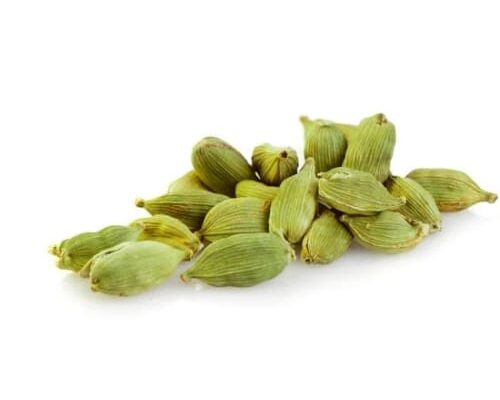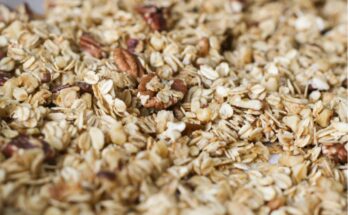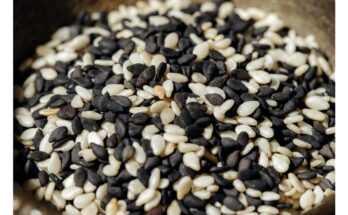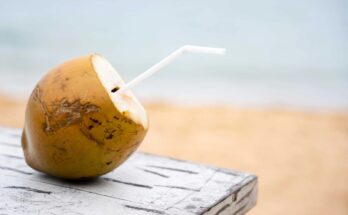Cardamom (Elettaria cardamomum) comes in two main types: small cardamom, known as “Chhoto elaichi” or true cardamom, and large cardamom, referred to as “Bara elaichi.” Of the two, small cardamom holds greater commercial value and is more widely recognized, securing its status as a globally important spice. It is a key ingredient in many daily recipes, making it indispensable in various cuisines.
This perennial plant grows from thick, fleshy rhizomes that branch out and can produce multiple upright stems. Its fruit is oval, measuring about 1.5 cm in length, and changes color from pale green to yellow as it ripens. Inside, the fruit contains numerous small, angular seeds, each about 2 to 3 mm long, enclosed in a thin, transparent membrane that becomes more apparent when wet.
Cardamom’s dried fruits are aromatic and offer a warm, slightly pungent flavor. They are also celebrated for their medicinal benefits. As a carminative, cardamom helps reduce excess gas and water in the body, stimulates appetite, and soothes mucous membranes. It is particularly effective in treating conditions like gas, heartburn, nausea, and vomiting.
For digestive problems, such as gas, half a teaspoon of ground cardamom in hot water can be consumed up to three times daily. A traditional blend of cardamom seeds mixed with ginger, cloves, and coriander is commonly used to relieve indigestion. Additionally, a decoction made from cardamom can ease headaches caused by indigestion, while a drink made from ground roasted and raw cardamom can help combat nausea.
In India, cardamom is often chewed in betel quids and widely used to flavor curries, baked goods, and a variety of other dishes. Its essential oil has diverse applications, including use in pharmaceuticals, perfumes, flavoring liquors and bitters, and as a stimulant in medicinal preparations.
Nutritive value per 100 g of Cardamom Green:
Energy (kcal) : 229
Protein (g) : 10.2
Fat (g) : 2.2
Carbohydrates (g) : 42.1
Crude Fibre (g) : 20.1
Minerals (g) : 5.4
Calcium (mg) : 130
Phosphorus (mg) : 160
Iron (mg) : 4.6
Magnesium (mg) : 173
Vitamins:
Thiamine (mg) : 0.22
Riboflavin (mg) : 0.17
Niacin (mg) : 0.8
Choline (mg) : 1550




